From Waste to Wonder: Mussel Poop May Help Clean Our Oceans
Published June 9 2023, 11:58 a.m. ET
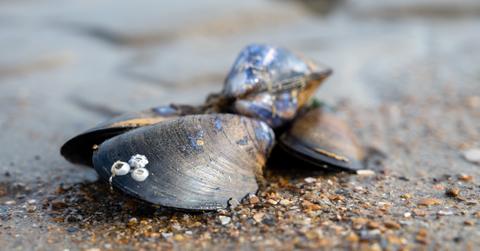
While many people are only familiar with mussels as food, there's so much more to these important and fascinating ocean creatures. Mussels survive by filtering ocean water through their bodies to snatch plankton to eat. Their byssal threads, which are used to anchor themselves to boats or the ocean floor, are strong enough to hold onto iron and steel.
But did you know that mussels may even provide help in cleaning our oceans?
A study published in the Journal of Hazardous Materials' July 2023 edition found that mussels can help eliminate microplastic pollutants in the ocean by eating them and then pooping them out. The contaminated mussel poop is easier to remove from the water than the plastics themselves, reports Science.org.
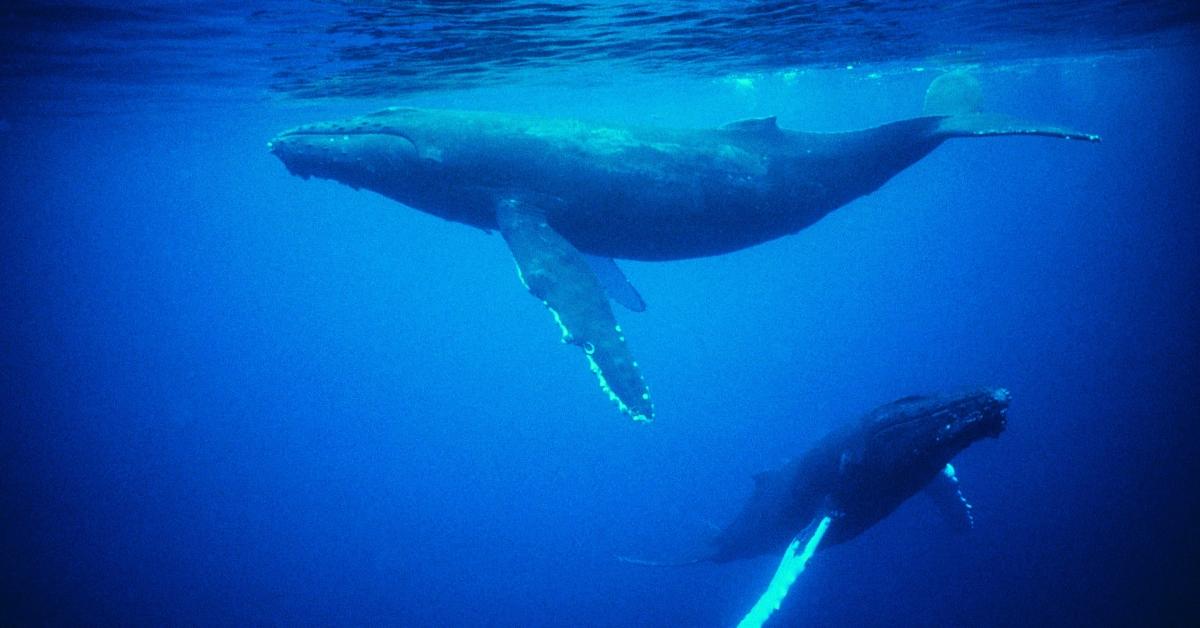
Do mussels have poop in them?
While this sounds like a great discovery, it makes you lose your appetite for mussels. Mussels poop, just like most living creatures. Their poop is called pseudofeces, and it is made up of the inorganic matter the mussels filter from the water and then expel through their siphon, reports the seafood website Anchor & Hope.
Is mussel poop harmful to humans?
Although mussel poop sounds pretty gross, it's harmless. It won’t kill you or even make you sick. And, if you eat mussels, you more than likely have ingested some mussel poop in your lifetime.
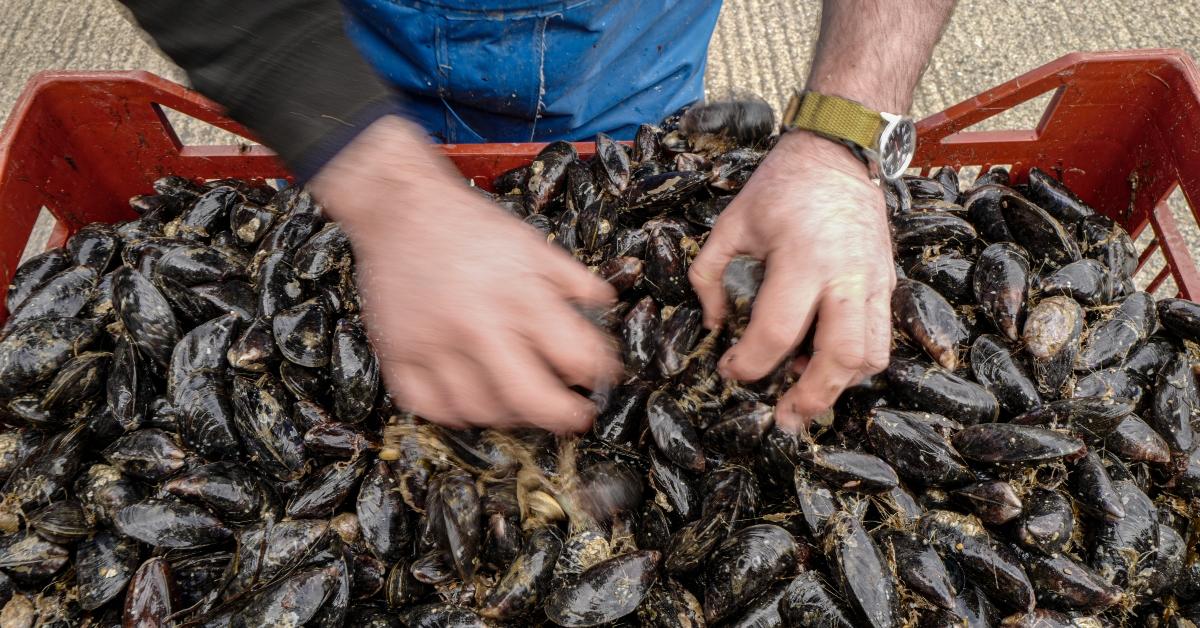
How does mussel poop help the ocean?
Microplastics are ocean pollutants that threaten marine life. While plastic pollution in the ocean, like grocery bags or soda can rings, can harm fish and other marine life, it is easier to clean up. But microplastics are less than five millimeters long, similar to a sesame seed's size, making it harder to clean out of the ocean water. When ingested by fish, the microplastics can hurt a fish's ability to grow, produce offspring, and survive.
That’s where the mussels come in. When deployed to aquatic ecosystems, the mussels “act as microplastic biofilters, removing waterborne microplastics and repackaging them into biodeposits that are subsequently captured and removed,” reports the study “Mussel power: Scoping a nature-based solution to microplastic debris."
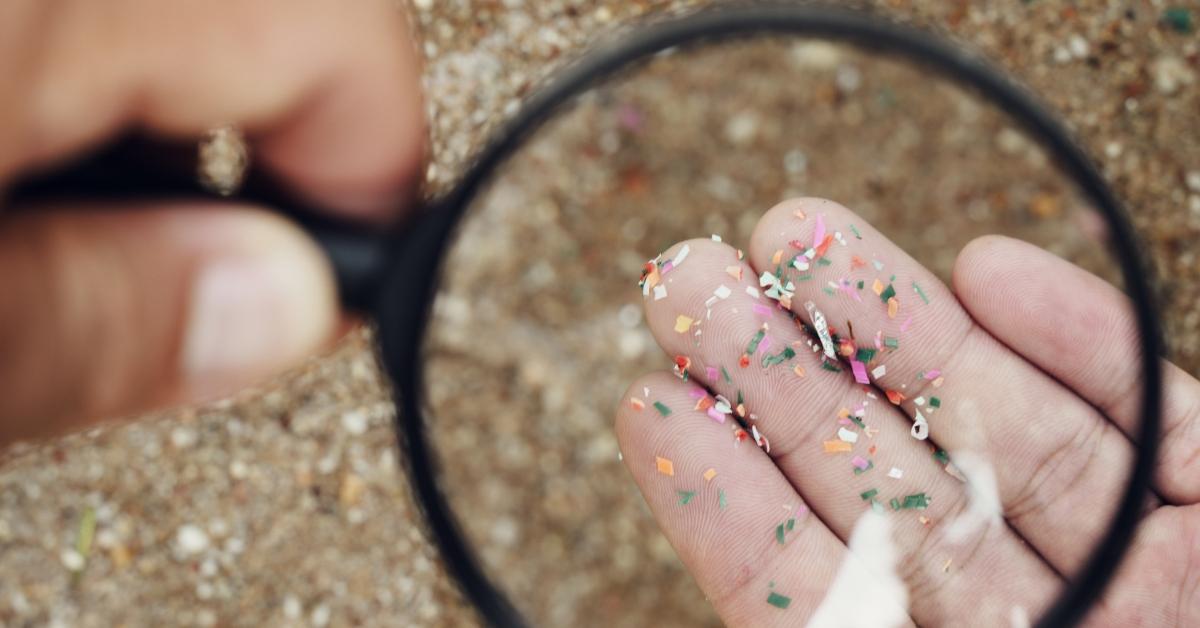
For the research, scientists took blue mussels from a farm in England, put them in a steel tank, then pumped them in microplastic-laden water. The mussels consumed two-thirds of the microplastics and pooped them out. The researchers then tested them in a real-world situation at a local marina. They lowered 300 blue mussels into the water with traps to catch their feces.
The result showed the mussels filter almost 240 microplastic particles per day! The researchers predicted that mussels situated at the mouths of estuaries could remove about 4 percent of microplastics from the nearby rivers.
Mussel poop sinks to the ocean floor, where it can be collected easier than the free-floating microplastic particles, Science.org reports. Even if it isn’t all collected, it is less harmful to marine life if it is trapped in sediment at the ocean’s bottom.
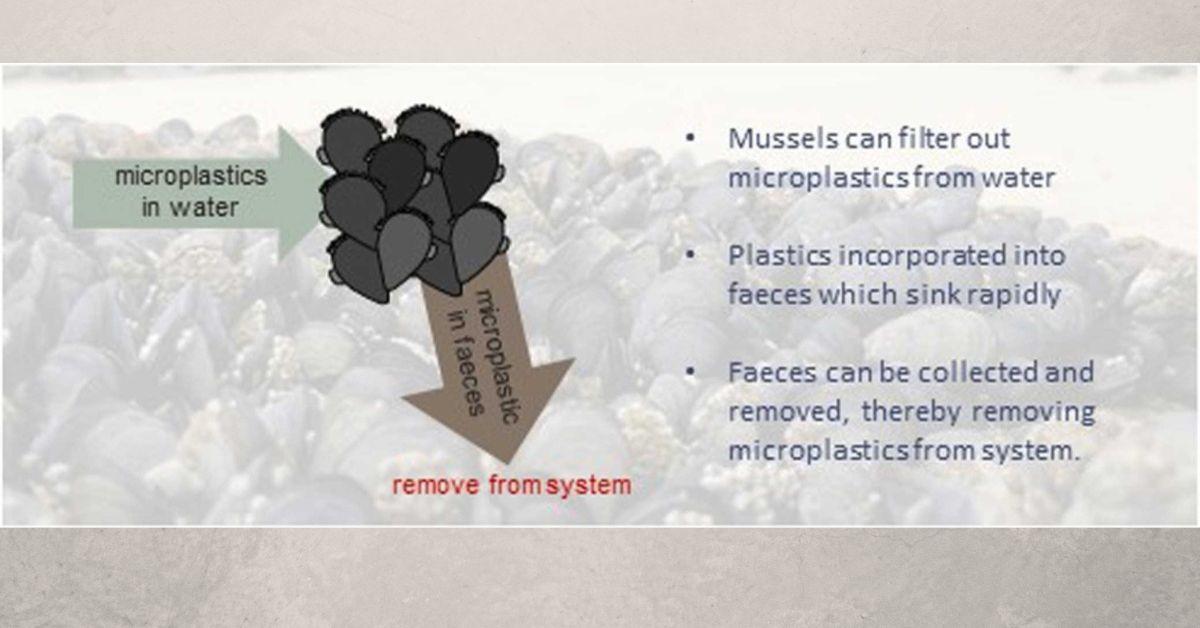
Diagram from “Mussel power: Scoping a nature-based solution to microplastic debris.”
Some scientists are skeptical that mussel poop is the answer to cleaning up microplastics in the ocean. Environmental physiologist Evan Ward with the University of Connecticut told Science.org, "You’d need a heck of a lot of mussels in a lot of different areas to really make a significant impact.”
“This is going to reduce [microplastics] slightly if it were applied on a large scale, but it certainly is not going to completely eliminate the problem,” ecotoxicologist Susanne Brander of Oregon State University added.
It's amazing how many scientists are working to help resolve the issue of microplastics in the ocean with innovative, out-of-the-box solutions. Mussels are a great start, but there are always more ways that humans can do their part and help clean up the ocean.